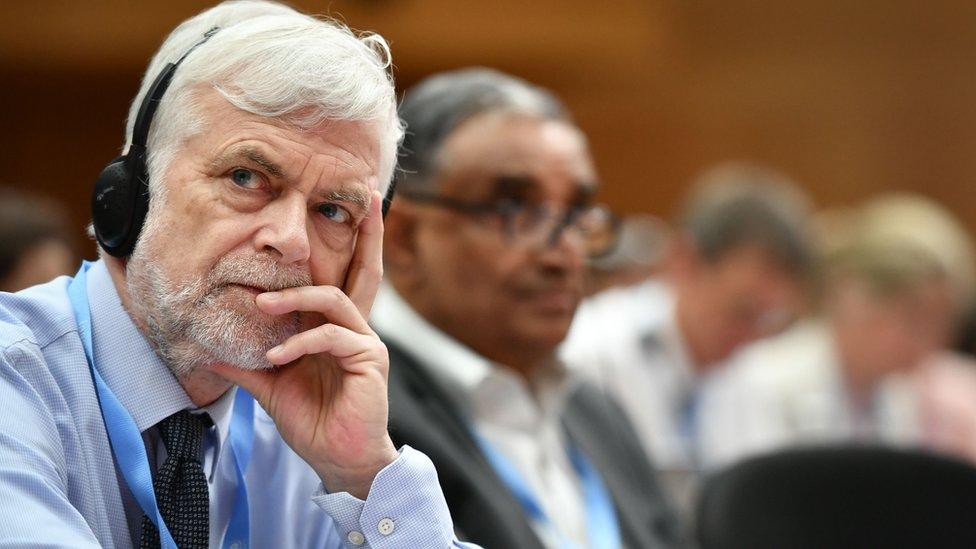'We can avoid the worst of it' - new climate chairman
- Published
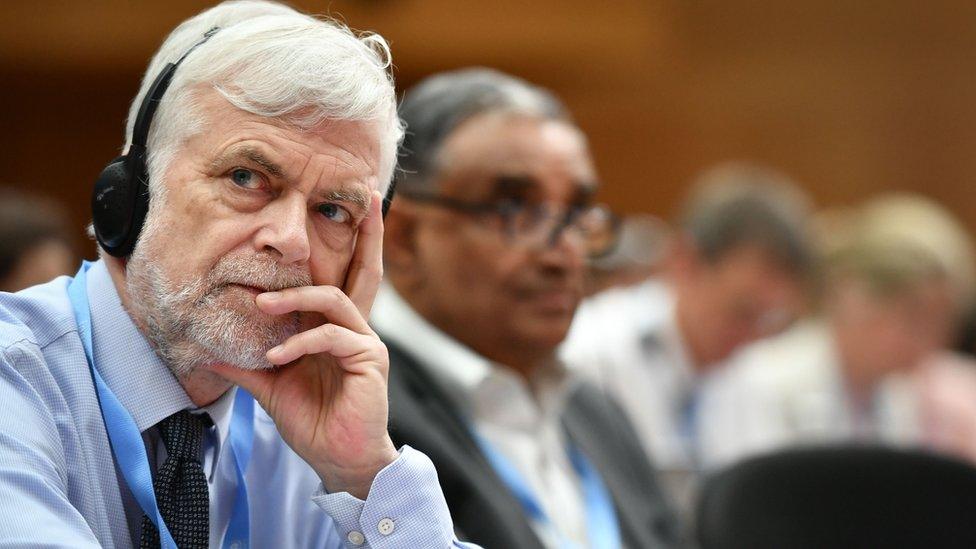
Professor Jim Skea from Dundee has been elected to one of the world's most influential climate change bodies
A scientist who chairs one of the world's most influential climate change bodies has said "we can avoid the worst" of rising global temperatures.
Prof Jim Skea told BBC Scotland that measures could include changing work practices and how we heat homes.
The Scot was elected as chairman of the Intergovernmental Panel on Climate Change (IPCC) on Wednesday.
It comes as a Met Office report showed a heatwave pushed the UK record over 40C for the first time last year.
The report said the record-breaking heat experienced in the UK last year would be regarded as cool by the end of this century.
The IPCC examines available scientific studies and interacts with policy makers in order to convince governments to back its conclusions.
Last year its work was described as a "code red for humanity" by the head of the UN.
Speaking to the BBC's Good Morning Scotland programme, Prof Skea, from Dundee, said the IPCC thought carefully about messaging in its reports in order to avoid "a sense of panic and despair".
He said: "We need to leaven the gloom with some hope and send out a clear message that human beings have an agency over their own future.
"We can take action that can avoid some of the worst consequences of climate change and we need to set that out clearly for people.
"So avoiding the sense that we're going to be paralysed because we face an existential threat is not going to help us, we need to think about the action we can take."
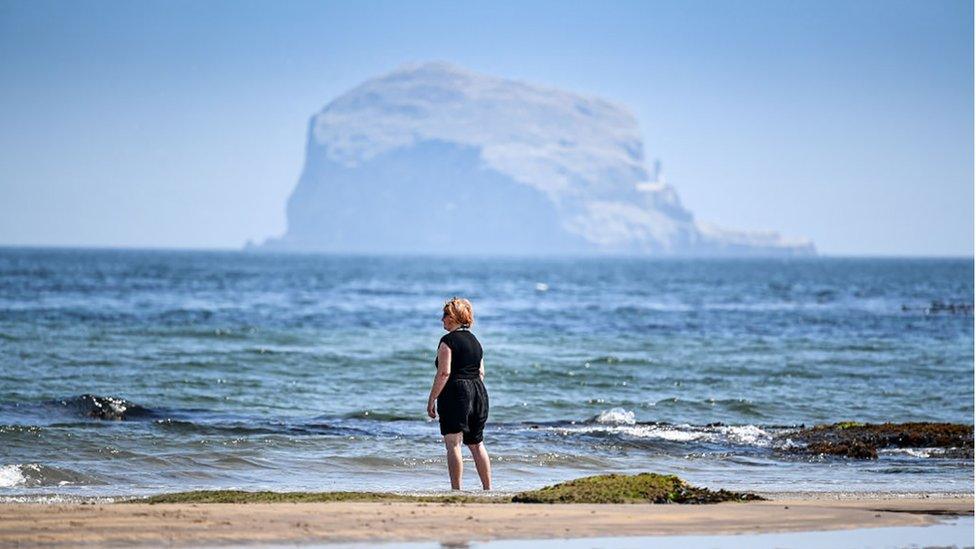
Extreme temperatures were forecast to reach the east of Scotland in July last year
Climate change is having an increasing impact on all parts of the UK, playing a key role in pushing last year's temperatures to record highs.
The Met Office's State of the UK Climate report for 2022 shows that apart from December, every month last year was warmer than the 1991-2020 average.
As well as persistent warmth, one key aspect of the study shows that extreme temperatures in the UK are changing much faster than the average.
Although England saw the worst of the heat, the report also gave a sense of changing conditions in Scotland. These included:
March 2022 was the sunniest March for Scotland
October and November were mild, with the daily minimum temperature records for Scotland reaching 14.9°C at Banff Golf Club, Banffshire, on 11 November
Scotland saw the largest anomalies for average days of air frost - 13 days below average
Rainfall totals were below average across most of the UK except for parts of Scotland and the west of Northern Ireland
Thunderstorms and torrential downpours continued to cause occasional flooding issues through June, July and August - Tesco's superstore in Inverness was evacuated because water came down through the ceiling
Most areas were sunnier than average, with the exception of north-west Scotland
Parts of southern Scotland were covered by the first red Met Office warning for extreme heat
Temperature anomalies exceeded 14C extensively across England, north Wales and southern Scotland
Scotland's hottest day was recorded at 34.8C at Charterhall in the Borders on 19 July
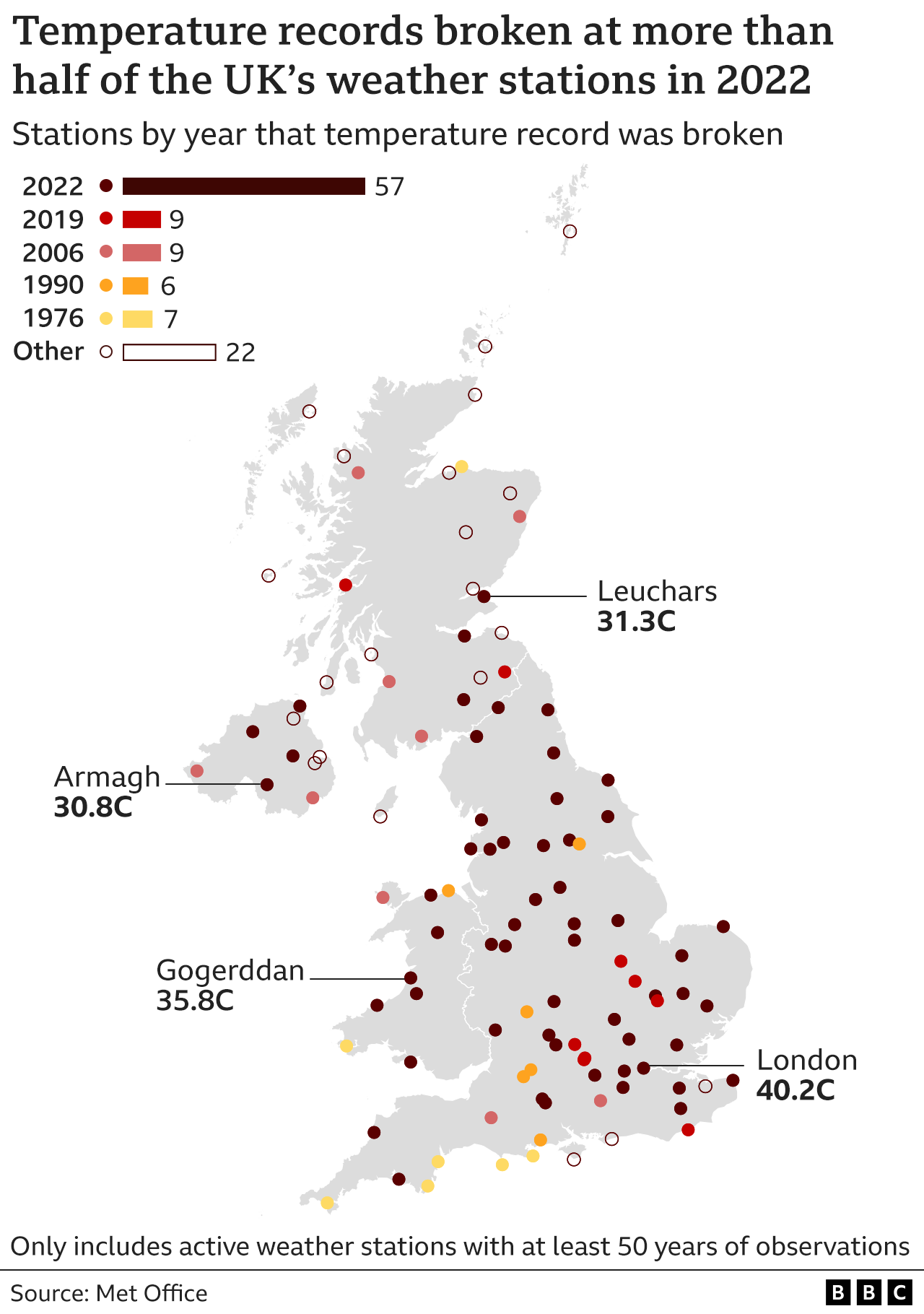
Earlier this month, the UK government's independent climate advisers warned that the country still needed to make climate change preparations a more important priority.
Meanwhile Scotland has again missed its target for cutting greenhouse gas emissions - the eighth time in 12 years that the legally binding target has been missed.
Over the next few months the IPCC will decide which work it will carry out over the next seven years.
Prof Skea said part of his new role will be to set out measures to do with renewable energy and energy efficiency in order to reduce emissions.
Those measures, he said, will include changes to where we build houses as well as how we heat and cool them.
He added: "There are some parts of the world where people simply can't work outdoors because of the combination of heat and humidity and we have to think about how we change work practices to deal with that.
"There are a lot of challenges with adapting to climate change, which is inevitable, as well as reducing emissions."
Related topics
- Published27 July 2023
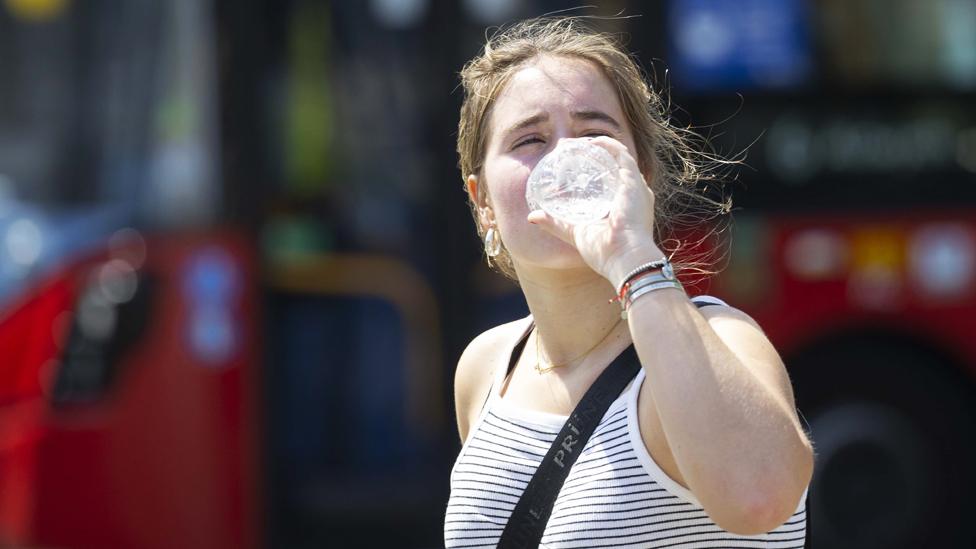
- Published26 July 2023
